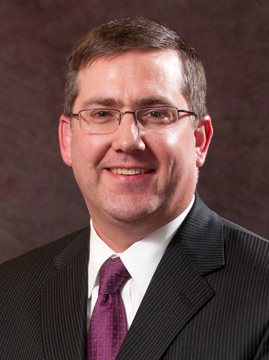June 9, 2011
Schulz tells animal health summit how research expertise is making K-State a national leader

For proof that Kansas State University is a leader in animal health, look no farther than the national research centers that have come to Manhattan because of the university's expertise.
That was the message K-State President Kirk Schulz had today for those attending an animal health summit hosted by Kansas Gov. Sam Brownback at Kansas Farm Bureau. Schulz named some of these centers: the National Bio and Agro-Defense Facility, a national center for animal health; ABADRU, which left Wyoming to relocate in Manhattan and studies arthropod-borne animal diseases; and CEEZAD, a U.S. Department of Homeland Security center that focuses on emerging and zoonotic diseases.
"All of these are here because of the expertise we currently have, as well as our plans for growing this area aggressively in the future," Schulz said.
K-State wants to be a national leader in animal health, he said. As Schulz led the university in creating a visionary plan for the future -- K-State 2025 -- he said one consideration was in what areas can K-State play a major role not just in Kansas, but also in the Midwest and the United States.
"And animal infectious diseases is clearly one of the areas in which we will continue to excel," he said.
K-State's particular expertise is in zoonotic diseases -- those spread between animals and humans -- and emerging disease threats.
"The Biosecurity Research Institute here on campus at Pat Roberts Hall gives us the kind of facility we need to do these things aggressively," Schulz said. "As we hire more faculty and build on the expertise we currently have, the university will continue to be a national and emerging leader in this area."
Moreover, Schulz said that K-State's strength in this area will help build up the animal health corridor that stretches from Columbia, Mo., to Manhattan.
"We want to make sure we're a solid anchor tenant of this exciting enterprise that in the next decades will rival things like the research triangle in North Carolina and Silicon Valley in California," he said.
Schulz also said the university was behind Gov. Brownback's desire to have a nationally recognized veterinary medicine school in the state. Schulz said K-State was working toward making its superb College of Veterinary Medicine even better.
